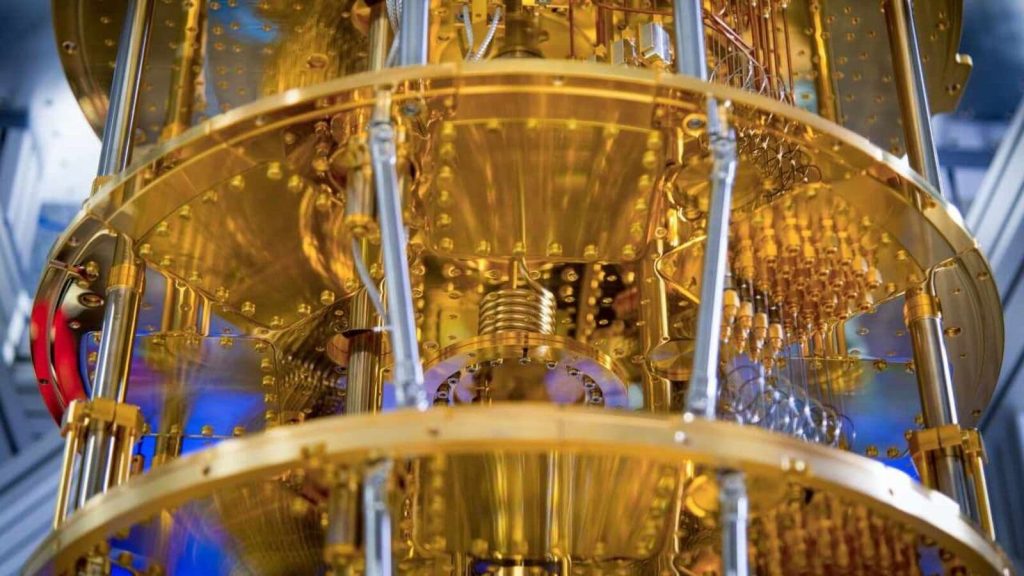The company generated buzz last week, raising more than $300 million in a funding round led by a U.S. investment firm. That Series B capital raising could be an early sign that investors are recognizing how the continent has emerged as a hotbed of ingenuity for quantum in recent years. Privately traded pure plays are springing up.
“If you look at the technology, it’s still very early, but we can build products that can compete even with the big names in the U.S.,” IQM co-CEO Jan Goetz said in an interview with Barron’s. “There’s this sentiment that finally, we have a chance, and I think there’s a lot of optimism here.”
After wrapping up a PhD in physics in 2016, Goetz found himself drawn to quantum computing, which was starting on the slow crawl from a research setting into the real world.
“Quantum was making the transition from university labs to industry,” Goetz said. “Here in Europe, we were still a bit behind, not from the technology perspective, but from the commercialization perspective.”
IQM was founded in 2018. The following year, the start-up became the first in Finland to raise seed funding, at €11.4 million ($13.4 million).
In the years that followed, it established itself as one of the pre-eminent quantum players in Europe, with clients including the Leibniz Supercomputing Centre in Germany and the VTT Technical Research Centre in Finland.
IQM’s processors are built from electronic circuits that are cooled to reach superconductivity, a state where they can conduct electricity with zero electrical resistance. “The superconducting approach is based on chip technology,” Goetz said. “We actually use very standard semiconductor processes to build our chips. And this alone tells you that it’s a very scalable approach.”
The tried-and-true nature of superconducting quantum computing makes it a popular modality. Much bigger players, such as Microsoft, International Business Machines, and Alphabet’s Google, use the same approach, with slight variations.
IQM aims to set itself apart from these behemoths by building better machines. In 2024, the company reported a technical milestone when one of its quantum processors achieved 99.9% fidelity. High fidelity is essential for the performance of quantum algorithms; it negatively correlates to errors, a persistent problem in the business.
The company is making strides commercially, as well. As of May 20, IQM had sold and shipped more on-premises quantum computers in the previous 12 months than any other manufacturer. Goetz said the company can produce up to 20 computers a year, “which is really a lot in this industry.”
From left: Juha Lehtola, director of venture and growth investments at Tesi; Alex Doll, co-founder and managing general partner of Ten Eleven Ventures; Dr. Sierk Poetting, IQM chairman; Mikko Välimäki, IQM co-CEO; and Jan Goetz, IQM co-CEO.
The CEO expects to see a shift toward cloud computing, or quantum as a service, in years to come. But sales of systems are IQM’s bread and butter for now, comprising most of its revenue. The start-up sells most of its computers to research clients such as Oak Ridge National Laboratory in the U.S.
“We integrate our quantum computers into their existing stack of CPUs or GPUs, and also the software stack,” Goetz said. “This allows us to develop the product up to a level where it can be adopted by industry.”
Companies such as D-Wave Quantum have seen lumpy revenue, with big chunks of cash arriving at irregular times, as a result of the infrequent nature of system sales. But Goetz argued that selling the hardware works as a way to make money.
“Customers renew their hardware every three years or so, which means that if you keep them happy, you’re in a very good position to sell again,” Goetz said. “We have now reached a level where we are clearly one of the market leaders, and people have a lot of trust that we keep on delivering, which kind of gives us a lot of strength going forward.”
As the race heats up, IQM will have to contend with ambitious rivals in Europe. In July, the European Commission put forward a strategy to position Europe as a global leader in quantum by 2030.
IQM is seeing a similar degree of support from European investors. While the involvement of a U.S.-based firm in the latest funding round caused it to make headlines, participation in the round largely came from European investors.
And things are only getting started. “There’s this kind of Renaissance feeling that now finally we can do something,” Goetz told Barron’s. “Growing the business on a global scale is a super exciting next step for the company.”

